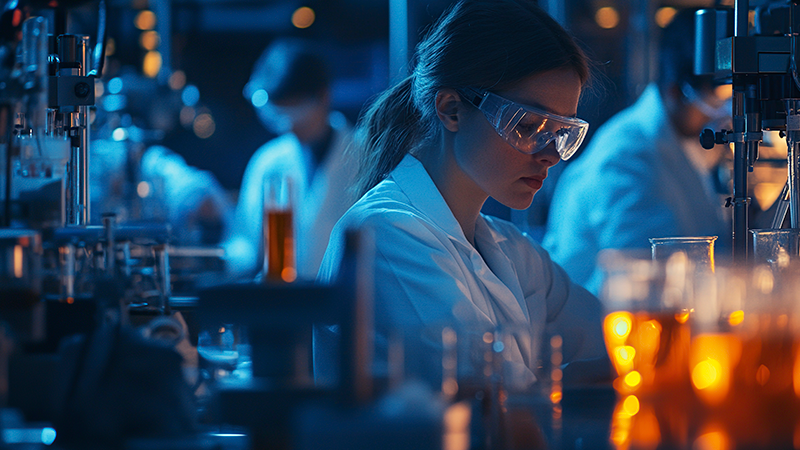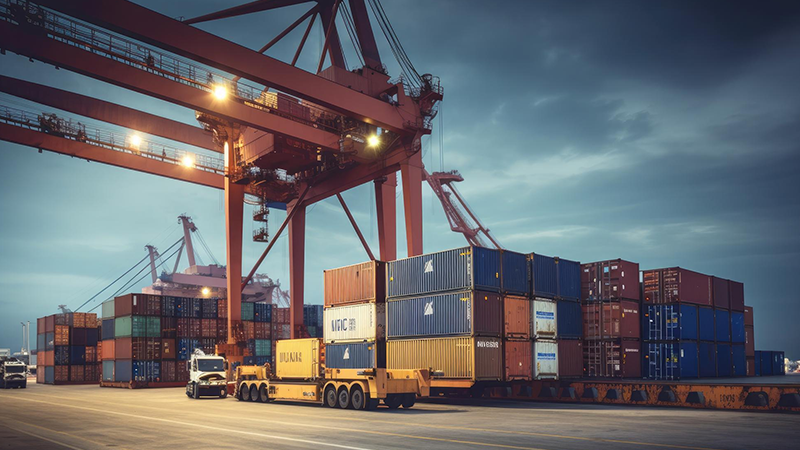By Gabriel Taison Campanholo
Bill No. 892/2025 aims to establish the Special Sustainability Program for the Chemical Industry (PRESIQ) and introduce changes to the Special Regime for the Chemical Industry (REIQ). The central purpose of this proposal is to stimulate the Brazilian chemical industry by aligning it with neo-industrialization, increasing global competitiveness, and supporting the transition to a low-carbon economy. The program also seeks to reverse the sector’s current scenario of high idle capacity and trade deficit.
I) Special Sustainability Program for the Chemical Industry (PRESIQ)
PRESIQ is an incentive regime that will take effect on January 1, 2027. The program follows the objectives of neo-industrialization and the missions established under industrial policy (Law No. 11,080/2004). Its purpose is to support technological substitution; global competitiveness and integration into global value chains; decarbonization; and alignment with a low-carbon economy within the productive and innovative ecosystem of the Brazilian chemical industry.
Eligibility Requirements and Modalities
Eligibility for PRESIQ will be granted to legal entities that comply with the provisions of the law, including biorefineries that are part of the chemical industry value chain.
General Requirements:
- Be taxed under the Actual Profit regime (Lucro Real).
- Be in good standing with federal taxes.
These requirements apply to all legal entities. Companies may qualify under either the Industrial modality or the Investment modality, described below.
Industrial Modality
Eligibility under this modality will be granted automatically and will apply to the acquisition of specific raw materials and inputs, including:
- Petrochemical naphtha and n-paraffin purchased by petrochemical centers;
- Ethane, propane, butane, condensate, and LRF (light refining hydrocarbons) purchased by petrochemical centers;
- Natural gas used to produce sodium cyanide, ammonia, urea, hydrogen, etc.;
- Ethylene, propylene, butadiene, benzene, and other intermediates purchased by chemical industries for the production of polyethylene, polypropylene, polyvinyl chloride, styrene, among other listed chemical products.
Investment Modality
Under this modality, eligibility will be granted by the Secretary of Industrial Development, Innovation, Trade, and Services of the Ministry of Development, Industry, Trade, and Services (MDIC). It applies to petrochemical centers and chemical industries that commit to investment in expanding installed capacity or present a project aligned with one or more PRESIQ guidelines. It also includes investments in new plants that use natural gas to produce fertilizers.
Additionally, legal entities benefiting from the regime provided in Article 57-D of Law No. 11,196/2005 (REIQ) will be automatically eligible under this modality.
Incentives (Financial Credits)
According to Article 5 of the Bill, financial credits will be granted in the form of Corporate Income Tax (IRPJ) and Social Contribution on Net Profit (CSLL) credits. The value of the credits will not be included in the calculation base for IRPJ, CSLL, the Contribution on Goods and Services (CBS), or the Tax on Goods and Services (IBS).
Credits may be used for:
- Offsetting future or past due liabilities related to taxes administered by the Federal Revenue Service;
- Cash reimbursement, which must be made within three months from the date of request. This benefit also applies to companies with tax losses or negative CSLL bases.
These credits apply even to legal entities with tax losses or negative CSLL calculation bases.
Credits Under the Industrial Modality (Art. 3)
The financial credit will be up to 5% of the acquisition value of the chemical products defined for this modality—that is, the invoice value without tax deductions.
R&D Commitment: Legal entities must allocate at least 10% of the credits used to research and development, or alternatively, 8% to R&D and 2% to socio-educational programs.
Annual Global Limits (2027–2029):
- 2027: R$ 4,000,000,000
- 2028: R$ 4,000,000,000
- 2029: R$ 4,000,000,000
Specific Allocation (Annex): The annual global limit of R$ 4 billion is divided among product groups:
i) Items “a” and “b” of section I, Art. 2 (Naphtha, gas for centers): up to R$ 2,000,000,000;
ii) Item “c” of section I, Art. 2 (Natural gas for cyanide, ammonia, etc.): up to R$ 150,000,000;
iii) Item “d” of section I, Art. 2 (Intermediates for chemical industries): up to R$ 1,850,000,000.
Credits Under the Investment Modality (Art. 4)
In this modality, the credit value will be up to 3% of gross revenue, limited to the value of the investment incurred for the approved project (capacity expansion or alignment with PRESIQ guidelines). The investment amount includes all costs, including taxes.
R&D Commitment: At least 10% of the credits must be allocated to R&D, or 8% to R&D and 2% to socio-educational programs.
To use these credits, companies must be previously eligible, obtain prior authorization for the project from the MDIC, and comply with the physical-financial schedule.
Annual Global Limits (2027–2029):
- 2027: R$ 1,000,000,000
- 2028: R$ 1,000,000,000
- 2029: R$ 1,000,000,000
II) Changes to the Special Regime of the Chemical Industry (REIQ)
Chapter II of the Bill amends Law No. 11,196/2005 and Law No. 10,865/2004, addressing the REIQ and temporary fiscal regimes.
Reduced PIS/COFINS Rates (2025–2026)
The Bill amends Article 56 of Law No. 11,196/2005 to establish reduced PIS/Pasep and Cofins rates on gross revenue from sales of inputs to petrochemical centers and chemical industries, for taxable events occurring from January 2025 to December 2026.
- Rates: 0.18% for PIS/Pasep and 0.82% for Cofins.
The reduced rates apply to:
- Sales of petrochemical naphtha and n-paraffin to petrochemical centers;
- Sales of natural gas for production of sodium cyanide, ammonia, urea, hydrogen, carbon monoxide, and carbon dioxide;
- Sales of ethylene, propylene, butene, and other intermediates and products listed in Article 56 for use in the production of polyethylene, polypropylene, polyvinyl chloride, and several other listed products.
Temporary Investment Credits (Art. 57-D)
The Bill also proposes including Article 57-D in Law No. 11,196/2005, effective from January 2025 to December 31, 2026.
This amendment introduces incentives for petrochemical centers and chemical industries, allowing them to deduct credits calculated by applying a rate of 0.5% for PIS/Pasep (including PIS/Pasep-Import) and 1% for Cofins (including Cofins-Import) over the contribution base.
Granting these credits is conditional upon an investment commitment and a project aligned with sustainability objectives identical to PRESIQ guidelines (e.g., increased energy efficiency, technological substitution, decarbonization).
R&D Incentive under REIQ
The Bill also amends Article 57-C of Law No. 11,196/2005, requiring companies to invest at least 10% of the benefit received in research and development programs.
Reduced Import Rates (2025–2026)
Another amendment applies reduced rates of 0.18% (PIS/Pasep-Import) and 0.82% (Cofins-Import) for taxable events between January 2025 and December 2026.
This applies to the importation of ethane, propane, butane, petrochemical naphtha, and condensate (destined for petrochemical centers), as well as the importation of various chemical intermediates (ethylene, propylene, benzene, etc.) for the production of multiple listed products by chemical industries.
III) Final Provisions and Effective Dates
The Bill revokes items I, II, III, V, and VI of Article 57-C of Law No. 11,196/2005. Its effective dates are as follows:
- Articles 1–5 (PRESIQ and its incentives): effective January 1, 2027;
- Remaining Articles (temporary REIQ changes and import rates): effective upon publication.
The proposal is presented as fundamental for economic development and national reindustrialization, as the chemical industry is foundational to all segments of a modern economy.
According to research, in 2023 the Brazilian chemical sector faced its worst historical performance in production, domestic sales, and capacity utilization (64%), while imports—particularly from Asia—captured most of the market. The trade deficit in chemical products reached USD 46.59 billion in 2023, undermining Brazil’s overall trade surplus.
Brazil’s chemical industry invests only about 0.6% of its net revenue in R&D, whereas international benchmarks recommend at least 1.5%. Consequently, the sector risks plant shutdowns and job losses due to lack of competitiveness and the pressure from cheaper, subsidized imports.
Programs such as PRESIQ and REIQ aim to reactivate idle productive capacity, ideally bringing the sector to operate above 85%. If utilization reaches 95%, there would be a direct impact on GDP and sustainability: emissions per ton of product would be 30% lower when operating at 95% capacity, contributing to Brazil’s carbon-reduction goals.
Strengthening REIQ and implementing PRESIQ are seen as crucial to attracting domestic and foreign investment, with an emphasis on renewable chemistry, biomass, and biorefineries. The project is viewed as a mechanism to stop the “extinction” of industrial chains in Brazil and safeguard national sovereignty in strategic sectors.
Given the financial and tax impacts of this proposal, the Tax Law team at Marins Bertoldi Advogados remains available to answer any questions and assist clients regarding this matter.





